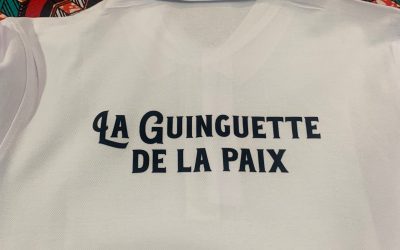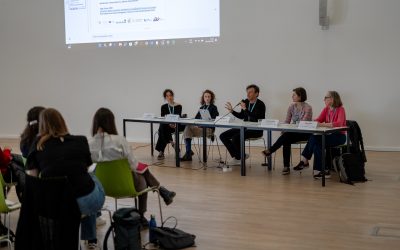A process of « Participatory Action Research » on decolonizing volunteering
by SCI Belgium
Last February, as part of the project ” Decolonize volunteering!” from CCIVS, we had the chance to host a beautiful group of young people wanting to start working on a challenging and demanding issue : the decolonisation of volunteering. We spent a week inside the « Peace House » in Brussels, a house filled with non-profit organisations working toward peace. What a beautiful image to be working on decolonisation…
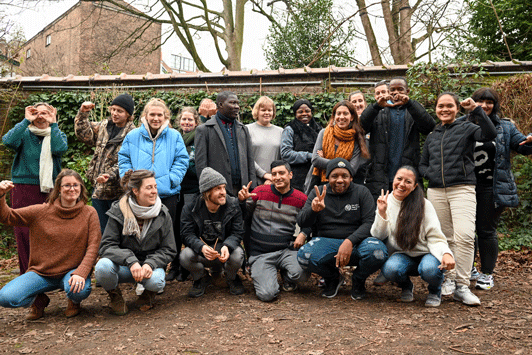
More than20 young volunteer-researchers came from Zimbabwe, Argentina, Austria, Finland, France, Togo, Nepal, South-Africa, Germany, The Philippines, Ouganda and Belgium for a week of hard work. Together, we discovered the secrets of a promising method, « Participatory Action Research », with the intention of bringing it back to our own countries’ organisations. The idea behind this type of research is to bring focus on action rather than on a mere theoretical thinking, and to involve as many actors as possible, every step of the way. With this, we are planning on changing some things locally, but also on learning what the « big picture » can teach us when talking about decolonizing our structures, in order to feed other actions more globally around the topic.
To understand better what PAR stands for, we had the chance to be accompanied and guided by Filipe Alves, a Portuguese researcher specialised in the field. He shared lots of interesting tools with us, which we had the opportunity to experiment during the week in order to make them our own and use them in our own organisations afterwards. We also benefitted from the support of Sara Vaca, a trainer from Ecuador who has already facilitated non-formal education seminars on decolonisation in Austria. What a multicultural group to tackle this important subject! A mix of cultures which allowed for deep connections and exchanges during the week, connections that are hopefully going to last even when the PAR process reaches its end.
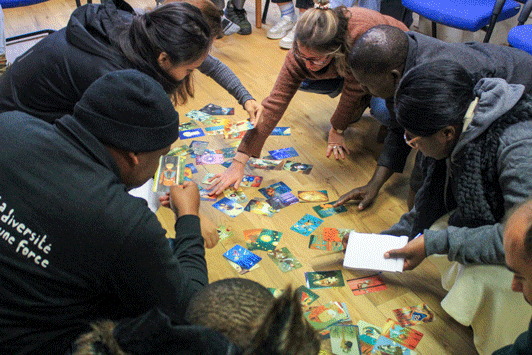
Throughout the week of training in Brussels, some of the techniques we learned seemed to really stick to the minds of participants, like the DYAD, a tool that allows for a deep conversation over a subject, practicing conscious listening. We also implemented a world café, a fishbowl, an open space, learned the particularities of different types of listening and practised the art of regular journaling, among other things. But more than the techniques we experienced, it is the conversations within the group that marked the participants. One of them says « I was so amazed by the positive attitude that the group had about the topic ».
Something which is made possible by the very idea of Participatory Action Research and that we are going to keep in mind is the fact that « we don’t have to be researchers to make a difference ». A realisation that could help empower any one who wants to tackle societal issues and bring change, even if it is on our own little scale. We are definitely looking forward to meeting again in July in Ferrara for our next PAR laboratory and see what this whole PAR process about the decolonisation of volunteering will bring us next.
If you want to learn more about the Decolonize ! IVS project and its next steps, feel free to subscribe to our newsletter (https://forms.gle/gZTum5mmMTWB4EyZ6) or visit our website (https://ccivs.org/decoloniseivs/).
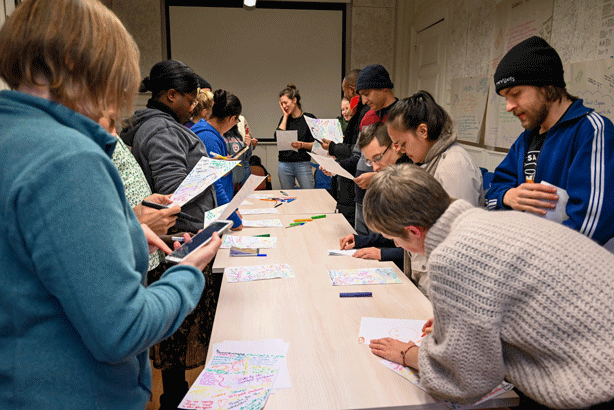
This article was written by Joëlle Mignon, SCI Belgium
Explore more news
We are looking for a ESC Communication volunteer in Belgium
The International Secretariat in Belgium is looking for a European Solidarity Corps volunteer in communication and campaigns, from 21 July 2025 for one year. Apply by 18 May 2025.
Shared solidarity meal at Guinguette de la Paix
On March 20th, SCI France gathered for the shared Solidarity Meal at Guinguette de la Paix - a well-established monthly event at SCI France, centered this time on sub saharan cuisine. It was a welcoming event in which it was shared a pleasant meal in the spirit of interculturality. It was also a chance to introduce our new volunteers Lauriane and Rosanna and share a bit about the role they’ll...
CEV Spring Volunteering Congress
The Centre for European Volunteering (CEV) Spring Volunteering Congress 2025 in Mechelen was a gathering of volunteering organisations from across Europe to talk about the future of volunteering. Participants shared ideas and experiences on how volunteering can support communities, promote inclusion, and develop skills. The event included visits to local projects, group discussions, and...


